Have you ever felt like you’re carrying a weight but you don’t know how it got there? And this heavy feeling is always showing up in unexpected ways. The thing is all of us have had experiences that have changed us in many ways, but the scars still remain. I am talking about unresolved trauma and the signs of unresolved trauma.
Most of the time, it’s easy to ignore or suppress what we feel emotionally, however, but ignoring the signs of unresolved emotional trauma will lead to more problems in the future.
Let’s take a closer look at the seven glaring signs that are telling you that it’s high time you take some space for yourself so that you can finally heal from what’s haunting you for so long.
Related: Warning Signs Of Unresolved Trauma: Recognizing The Invisible Scars
What Does Unresolved Trauma Mean?
Alright, picture this: unresolved trauma feels like you have been carrying a sack of rocks for so long that you don’t even remember when you started. It’s those memories, feelings, or experiences that you never properly processed or healed from.
This emotional baggage always threatens to bring you down, and sometimes you do feel like you have fallen into a black hole, and you’re being sucked deeper the more you try to get out of it.
Your unresolved emotional trauma affects how you feel, act, and think in your everyday life. It’s sneaky too, lurking beneath the surface and popping up when you least expect it, messing with your relationships, work, and overall well-being.
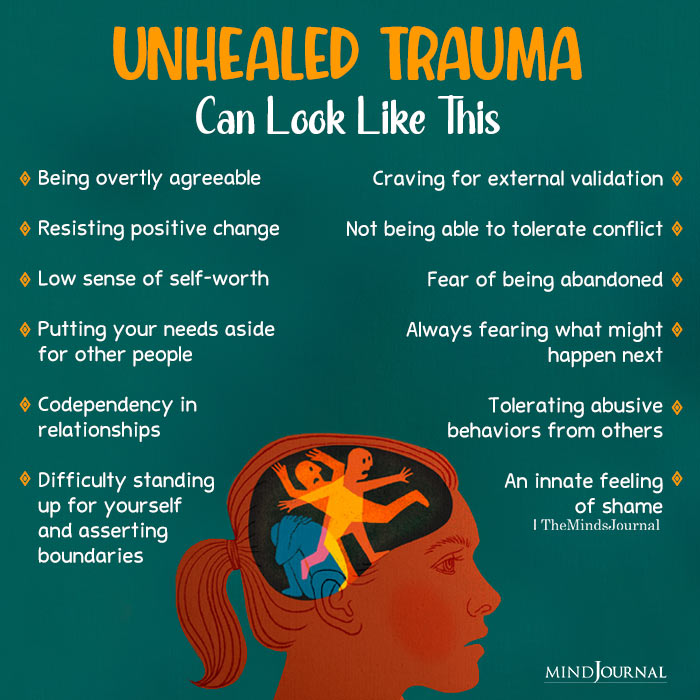
7 Glaring Signs Of Unresolved Trauma
1. Feelings of anger and shame.
One of the major signs of unresolved trauma is this right here. Many victims of violence and abuse tend to struggle with feelings of shame and anger, which often leads them to engage in self-destructive behaviors.
They may feel like they should have been stronger so that they could have stopped their culprit. And you know what the worst part is? Many victims of unresolved emotional trauma tend to hold themselves responsible for what happened to them.
The anger you feel represents the pain, helplessness, and shame you have been carrying within you for years.
2. Feeling hypervigilant most of the time.
Hypervigilance, one of the glaring after-effects of unresolved emotional trauma, is like having your internal alarm system on full blast. It’s as if your brain is always awake and it’s searching for dangers that don’t exist.
This heightened sense of awareness is a result of the trauma you experienced in the past, that significantly affects your nervous system, making you feel trapped in this persistent fight-or-flight mode.
Even when you are safe, you feel like danger is lurking just around the corner and it’s just a matter of time before you have to suffer again. Every shadow and every movement feels like a threat, which drives home the point, that unresolved emotional trauma never simply disappears.
Related: Invisible Wounds: 10 Ways Unresolved Attachment Trauma Manifests in Adults
3. Low self-esteem and feelings of worthlessness.
When you suffer from low self-esteem due to unresolved emotional trauma, it slowly chips away at your self-worth, self-image, and sense of competence.
Feelings of hopelessness, helplessness, and incompetence keep on tormenting you, and you feel like there’s no end to this. All of this is a result of unhealed trauma that keeps on plaguing you well into your adulthood.
4. Disturbed sleep and nightmares.
Nightmares become unwelcome nightly guests when your trauma refuses to stay in the past. Your brain’s attempt to make sense of the chaos ends up dragging you back into the heart of the painful event, replaying it in vivid detail.
Each night becomes a battleground where sleep is disrupted by relentless scenes of distress. As you wake, drenched in sweat and tangled in sheets, the exhaustion isn’t just physical—it’s a mental marathon, leaving you drained and dreading the next descent into sleep’s unsettling terrain.
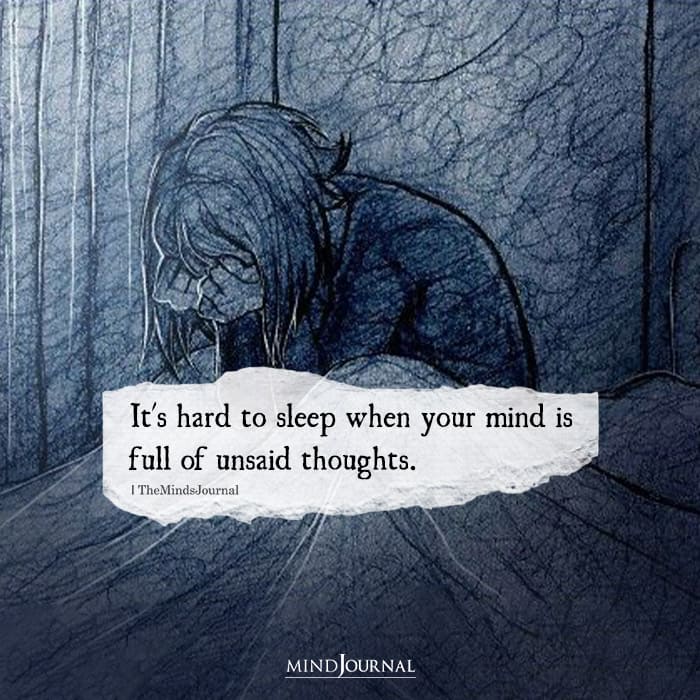
5. Self-harming behaviors.
Self-harming behaviors like hair-pulling, cutting, or skin-picking become your coping mechanisms when it comes to dealing with unresolved trauma. You feel like, the more you bleed, the more you are letting go of the pain and suffering you’ve been carrying around forever.
However, it doesn’t work that way. You may feel better for a short while, but then those feelings come rushing back to you, and just like that, you’re back to square one. It’s like a vicious cycle – you harm yourself, you feel better for some time, and then you go back to the starting point.
This makes your trauma’s hold on you even stronger, and it pushes you down into the black hole of hopelessness even more.
6. Psychosomatic illnesses.
Psychosomatic illnesses refer to physical symptoms that are a result of psychological causes. Interestingly, many people spend years looking for the cause behind their chronic physical illnesses, only to know later that unresolved emotional trauma is the culprit.
Psychosomatic illnesses are one of the major unresolved trauma symptoms, and they can show up like the following:
- Chest pain
- Insomnia
- Digestive issues
- Musculoskeletal pain
- Migraines
- Allergies
- High blood pressure
- High levels of cortisol
Related: The Haunting Of Our Minds: 11 Types Of Psychological Ghosts In Your Head That Linger
7. Eating disorders.
There are quite a few studies out there that have found a link between unresolved trauma and eating disorders. If you have suffered from sexual abuse as a child, chances are you might struggle with anorexia and bulimia.
Trauma can have a huge impact on your relationship with food and body image. Eating disorders are one of the subtle signs of unresolved trauma, but they can say a lot about what you struggled with in your past.
5 Strategies For Dealing With Unresolved Trauma
1. Acknowledge and accept your feelings.
One of the best things you can do when it comes to dealing with unresolved trauma is accepting what happened to you. Once you acknowledge what you went through, you will be able to try and move past it.
Journaling is a common way to manage stress and navigate your way through traumatic events. Give it a try, and see how you feel when you note down all that you feel. Sometimes, sitting with your feelings is one of the best things you can do for yourself.
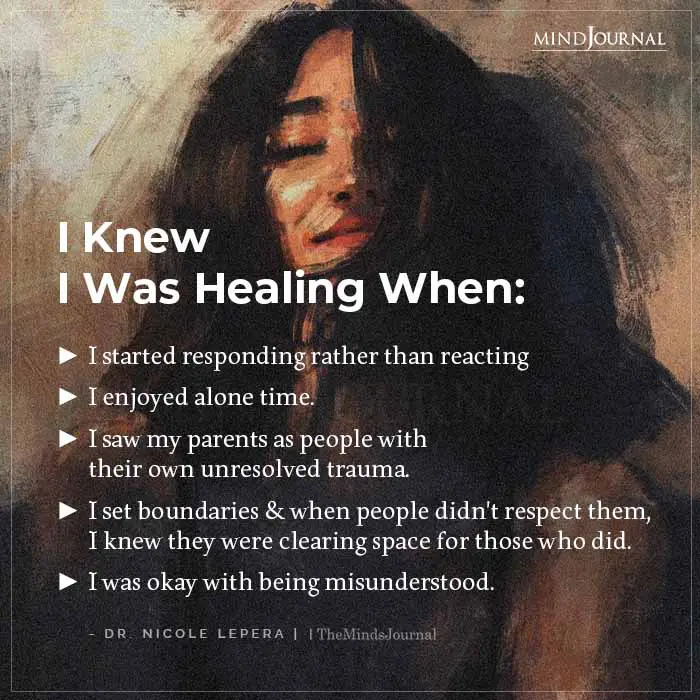
2. Practice mindfulness or meditation.
One activity that has been shown to help with healing from unresolved emotional trauma is mindfulness. Learn to live your life in awareness, pay attention to each moment, and pay attention to your body – all these can help reduce stress.
Mindfulness actually leads you to meditation. Additionally, breath work which comes naturally from being mindful is a very useful way of dealing with anxiety and helps you stay calm.
3. Take a break whenever things feel a bit too overwhelming.
When you are dealing with unresolved trauma, and trying to heal from it, you may sometimes feel more tired than usual.
The best way to handle this is self-care. Try to take breaks whenever you feel exhausted so that you can recharge your energy and start again with a positive mindset.
4. Take care of yourself.
Self-care is essential to reducing stress and feeling good. During your healing process be sure to take action that yields a positive result and work towards making it a habit.
Self-care doesn’t need to be expensive or complicated, something as simple as taking a hot shower can be enough. What matters most is finding the time to take care of yourself because at the end of the day, your well-being comes first.
Related: The One Thing Critical To Successful Healing From Emotional Trauma
5. Stay away from substance abuse.
This is absolutely crucial when it comes to dealing with unresolved trauma.
When you’re struggling, it can feel tempting to turn to drinking or recreational drug use. However, these things are highly addictive and they flood your brain with dopamine which gives you a temporary escape from feeling sad.
But don’t let your brain trick you! Everything is temporary, including this pain that you’re going through right now. Once you’ve taken the time to heal from your unresolved emotional trauma, you can go back to enjoying things like social drinking but for now just take some time off.
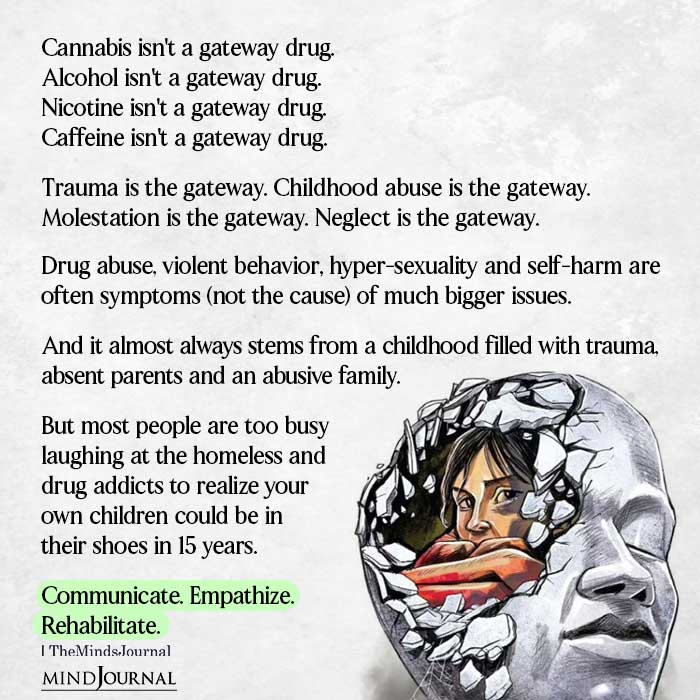
Have you noticed any of these unresolved trauma symptoms in yourself? Do let us know your thoughts in the comments down below!
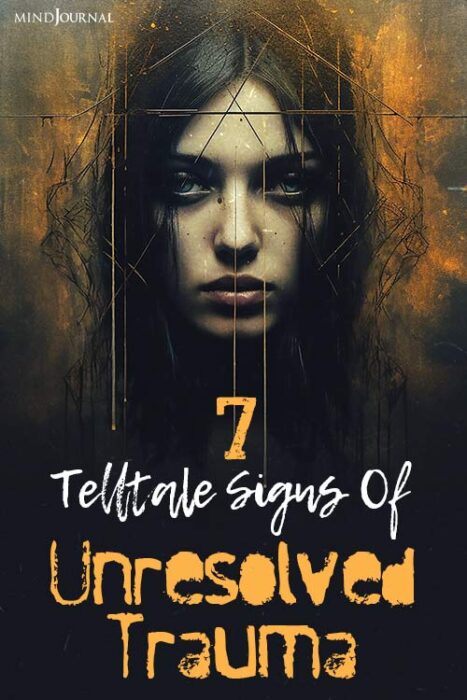
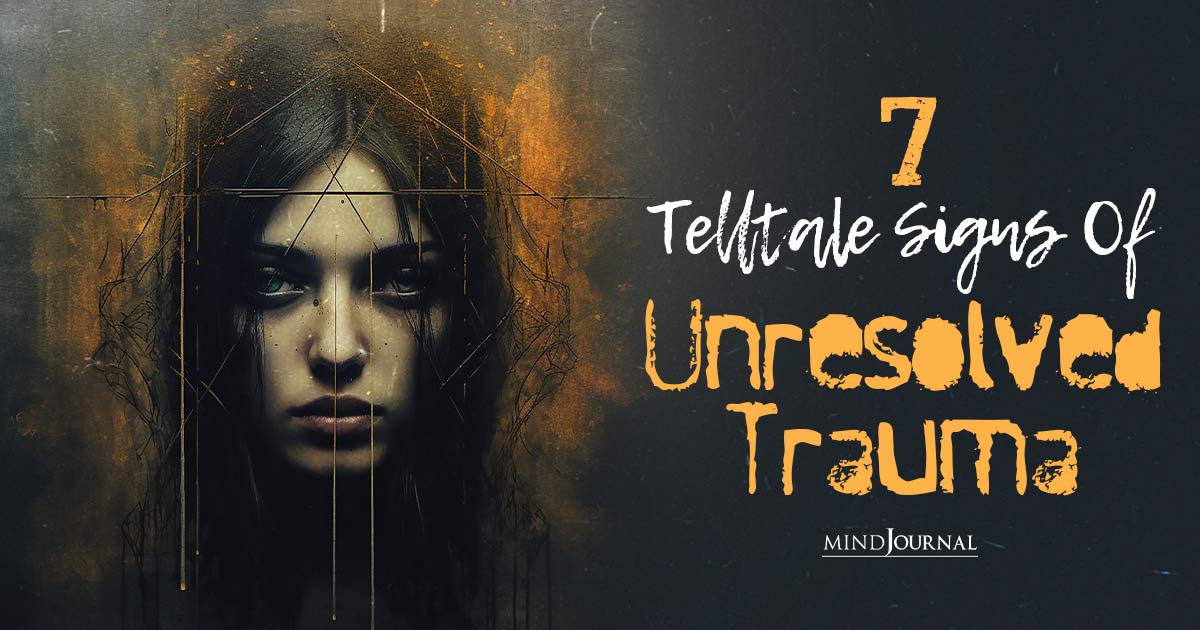





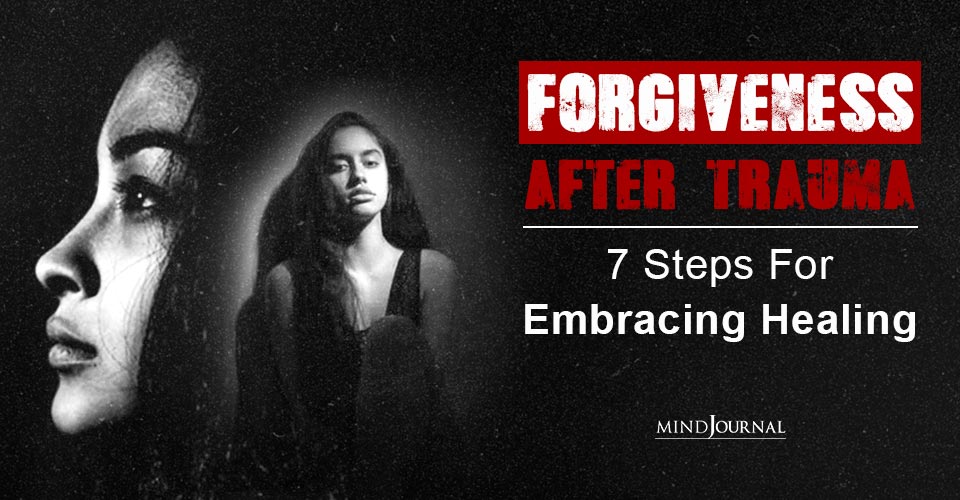

Leave a Reply
You must be logged in to post a comment.